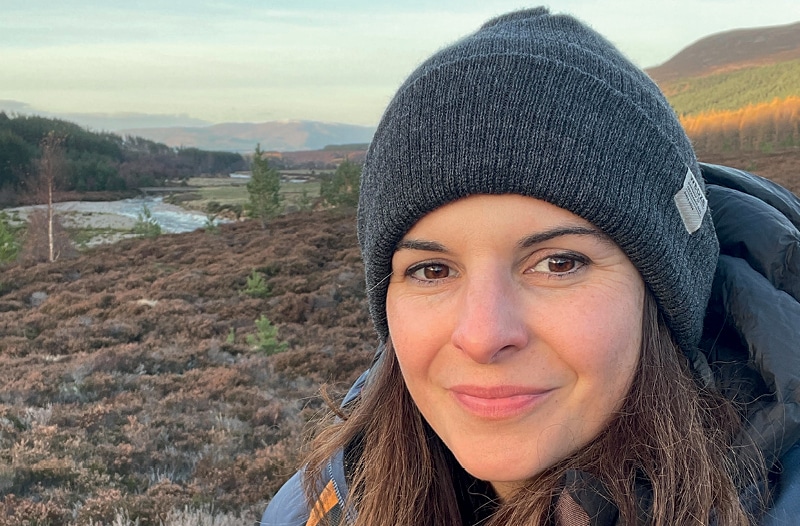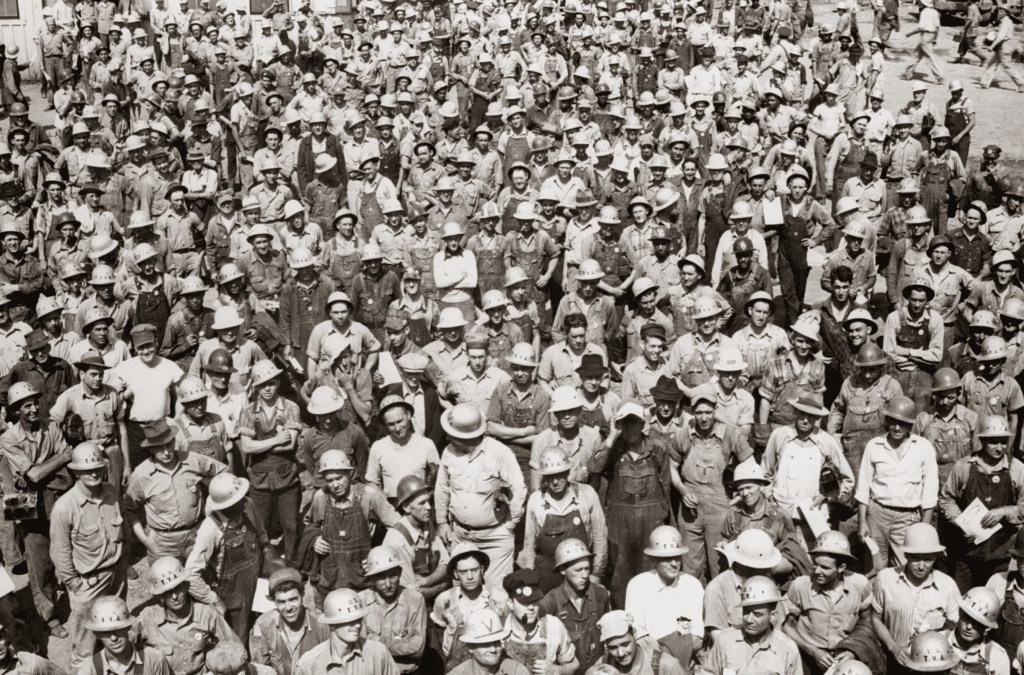
Pay It Forward

As he built his Fortune 500 business and personal fortune, he’s always kept that unknown sponsor in mind. When he was in his late teens, an anonymous person gave William R. Berkley a break—a chance to make something of his life—and he’s paid it forward time and again with a generosity of spirit that matches his tireless drive and business acumen.
That break, a full scholarship to New York University, where Berkley majored in statistics and finance and graduated in three years, opened the doors for a young financial whiz who’d begun studying the stock market while still in middle school.
“The fact that I ended up going to NYU because someone I never knew decided that I should get financial aid was a real eye-opening experience,” Berkley says. “What an incredible thing to have happen. It’s something I remember all the time.”
Growing up in northern New Jersey, sandwiched between an older and younger brother, Berkley learned from his father the importance of a staunch work ethic and the value of investing. “My dad owned vending machines that sold nickel candy, then he worked for a company that manufactured cookies that were sold in vending machines,” Berkley says. “We talked about investing in stocks, and he taught me to read about companies.”
Then one day, life as Berkley knew it screeched to a halt. When he was just 11, his father was killed in an airplane crash.
Though his home life shifted radically, his interest in money management flourished. He started investing at age 12 with money he made from side businesses, such as lawn mowing, and poured those earnings into the stock market, aggressively buying shares in companies such as Decca Records, which was signing rising British rock artists, and Chrysler. As the stocks rose, so did Berkley’s passion for investing in them. He spent hours scouring The Wall Street Journal and Fortune magazine for the next opportunity.
When he received the scholarship, Berkley’s life shifted again—into the fast lane.
Harvard and Beyond
After graduating from New York University in 1966, Berkley entered Harvard Business School, where he took his investing to the next level: running a $2 million mutual fund out of an apartment on the Harvard campus with a classmate, Paul Dean. “All my money was invested in the stock market, so Paul put in the $2,500 capital we needed to start Berkley Dean,” he says of the company they founded in 1967, the predecessor to W. R. Berkley.
While at Harvard, the partners initially managed the money of other students and faculty members, but they branched out to managing money from outside clients after Berkley graduated in 1968. By now, Berkley Dean & Company was managing $10 million in mutual fund assets. “I was as confident as anyone who was 20 years old,” Berkley says with a laugh.
Soon after, Berkley met a reinsurance broker, and they began managing money for insurance companies. And, as he had done with all his investments, Berkley threw himself into the nuances of the insurance business. “It’s that old story of knowing your client, knowing your customer,” he explains. Intrigued, Berkley recruited investment banker Rodney Hawes Jr. (today a director of W. R. Berkley) who found the first insurance company Berkley would buy: Houston General Insurance.
It was the early 1970s, and with the stock market stalling, Berkley was ready for a change—one afforded by the insurance market.
“As I learned about the business, it became clear that it was really interesting,” he says. After purchasing Houston General, Berkley sold the mutual fund company and started focusing more on the insurance industry.
The company went public in 1973 as W. R. Berkley Corp., and Berkley invested the proceeds from the offering in Houston General Insurance. Fourteen months later, he sold the company for nearly twice the purchase price—and started buying other insurers. He noticed that many insurance companies were operating with a bigger-is-better mentality designed to attract clients, intimidate competitors, and reap the benefits that go along with economies of scale, but they were losing sight of the intimate connections that forged a sense of trust and understanding with local and regional markets.
Berkley’s strategy was innovative for the time: Keep it small, keep it local, keep in immediate touch with the customer.
Berkley evaluated acquisitions on specific criteria: The companies had to be well managed and serve a market niche. And Berkley’s team had to be convinced that the move would dramatically benefit Berkley’s bottom line. The resulting acquisitions laid the foundation for the business model that is still proving successful for the 45-year-old company: specialty insurers and regional insurance companies.
“As an investment analyst, I found that regional and specialty companies had higher returns and were able to compete with the big national or global companies and get better returns despite their a smaller scale,” he says.
His company’s great limitation was capital. Berkley’s solution: finding multiple-market operations that would give W. R. Berkley the opportunity to be important in the market niches in which large amounts of capital were not key.
Berkley cites Union Insurance, Tri-State Insurance, and Acadia as examples of small, regional companies he acquired that, he says, “built tremendous relationships with their agents and were able to get substantial market shares.”
W. R. Berkley followed this model with its other regional acquisitions, creating companies with a blend of small-scale local access but with more capital than their local competitors. And he let these regional companies operate autonomously, which allowed them the flexibility to respond to customer needs immediately.
“They knew their markets and their agents better than we did,” Berkley explains. “We drew a box and said, ‘Here’s what you can do. Let’s agree on it ahead of time, and once we agree on it, whatever is within that box you can do. You don’t have to talk to us.’ The box is meant to define risk. Once we’ve defined it, the companies can roam anywhere within that risk confine. The business is theirs to run.”
“My father is very entrepreneurial, and, as a result, he is always encouraging his colleagues to think outside of the box and not to accept the status quo,” says Berkley’s son, Robert Berkley Jr., the President and COO, who has worked for the company for 14 years. “He enjoys working with people, and people enjoy working with him because he takes a natural interest in their growth and development. While he has managed to accomplished many things in his life, he still has not lost sight of the fact that it is people who make the difference and that it is all about the team.”
Berkley applied similar principles when he branched out into the specialty insurance market by purchasing Admiral Insurance Company, which he says “served the niche of hard-to-place, complicated risks with large wholesalers.”
More recently, W. R. Berkley entered the field of environmental insurance, which protects companies against liability from accidents like oil and chemical spills. “We will do the most difficult risks because we have expertise,” he explains.
Berkley’s approach has played well with investors. “We like companies with a specialty property-casualty insurance strategy because we believe the expertise of the underwriters gives them the competitive advantage,” says Drew Woodbury, the equity analyst covering W. R. Berkley for Morningstar. “When the mass market is fearful of a particular line, you are more likely to get more favorable pricing, and when you have expertise in those lines, as Berkley does from writing such policies for a long time, you’re more poised to take advantage of that as opposed to a larger company that was just writing that business in order to fill premium volume. They’ve courted long-term investors who respect a company that is doing the right thing for the fundamental value rather than trying to make an earnings target or to impress Wall Street.”
While acquiring new companies, Berkley made sure his core operation did not incur excessive debt, kept an eye on expenses, and invested assets in conservative instruments. This strategy helped W. R. Berkley weather the property-casualty industry downturn of the early 1980s. “We realized that we were a new participant. We were unknown, and therefore we had to be particularly cautious with our portfolio strategy,” Berkley explains. “We started with a low level of volatility. Then, we went forward and examined everything as to volatility. We looked at the world as if we were the house in a casino: The house has the odds in its favor, but you have to be there the next day.” His goal was to manage the company in a way that would ensure survival and prosperity, not necessarily to maximize gain.
“From our point of view, everyone perceived us as a company that was always focused on making the most money, but in fact we were a company focused on optimizing risk-adjusted return. The first word there is risk. That’s one of the things that differentiates us.”
The strategy paid off. By 1987, W. R. Berkley’s total assets surpassed $1 billion, total revenues exceeded the half-billion dollar level, and its net worth rose over the one-quarter-billion dollar mark. By 2004, W. R. Berkley joined the Fortune 500 with $3.6 billion in revenue and $1.7 billion in stockholder equity.
Another aspect that distinguishes Berkley’s approach is the company’s longer-term perspective on the market, Woodbury says. “They realize that in insurance there are occasionally large losses and that prices are going to decline for a long period of time,” he notes. “The company focuses on long-term profitability and strives for that even if that means losing volumes and premiums during soft markets. Berkley’s not afraid to disappoint if he believes it means it’s good for the long-term viability for the company.”
In the mid-1980s, Berkley shifted again. He decided he no longer wanted to buy existing companies and weather what he calls the “big unknown” of their loss reserves and company culture. So he started to scour the industry for teams of people with specialized expertise around which W. R. Berkley could build its own companies and divisions. The concept of finding experts and moving forward with them as teams was innovative and proved to be yet another cornerstone in Berkley’s empire. Today, of the company’s 43 specialty units, 36 were developed internally.
His standards for finding talent were, and still are, straightforward: He looks for people who have a committed focus and who can operate autonomously. He also prizes ingenuity. Berkley fondly remembers one of his employees’ comments: “One of the nice things about working for Berkley is there is no ‘Berkley way.’”
A Company with Heart
As the calendar flipped from 1999 to 2000, Berkley had come to some hard realizations that would change his business profile and affect his employees on a personal level. W. R. Berkley, the management team decided, was not in a position to compete globally in personal lines. Plus, it had too many small, regional companies and needed to consolidate.
But consolidating 11 regional companies into four meant eliminating 500 jobs. Or, as Berkley puts it, “We had 500 people we needed to help find jobs for.” Going beyond the typical severance plan, Berkley’s team worked hard to help every person who wanted a job find one before the business closed. “It was a real effort on our part,” Berkley says. “It’s easy to talk about how employees are important, but it’s different to be sure to treat your employees that way.”
Berkley refers to these companies not as “regional offices” but rather as “company headquarters,” since each operates as an independent company. Presidents from each of those companies visit the Greenwich, Conn., home office a few times a year, and a senior vice president is in weekly contact. Rob also visits a few times a year, and Berkley sees as many as he can.
“We want the people who work here to feel proud of who they work for and what we stand for,” Berkley says. This philosophy has served him and the company well. The decentralized operation expanded overseas in 1994 and now has companies throughout Europe, South America, Australia and Asia.
Shooting Straight
Berkley, a past chairman of the American Insurance Association, has a reputation as a straight shooter.
“Bill Berkley is well respected, one of the longest industry veterans,” Woodbury says. “He’s very willing to give his opinions on the market, and people listen to him. He is frank and honest with his opinions. For example, in the soft insurance market environment, he’s been one of the most outspoken people calling for a necessary raise in insurance prices. A lot of CEOs don’t want to stick their necks out there in regard to something as important as pricing. He’s laid out his thesis as to why rates and prices should increase. He’s not afraid of the consequences.”
Berkley is the first to agree. “You have to understand what is going on and have a view. You can’t just say whatever is in fashion at a moment in time,” he says. “I start with the view that insurance is a really good business. It’s a fabulous service we perform and essential for our society. Ultimately, what we are selling is a promise to fulfill the commitments in our contract. If we pay someone too little, we’ve cheated them, and if we’ve paid someone too much, we’ve cheated ourselves. That’s not to say there are not gray areas. Life is gray. But if you follow those fundamentals and those commitments, most everything else works its way through. It’s easy to look at the world in a straightforward way when you don’t try to play games.”
W. R. Berkley Corp. entered the reinsurance market in 1975, and today Berkley is a vocal opponent of the reinsurance tax law. “Non-U.S. companies that write U.S. business have an advantage since they don’t pay tax and U.S.-based companies must pay tax,” he explains. “All the reinsurers of consequence but three—Berkshire Hathaway, Berkley Insurance, and Transatlantic—are located outside the United States. And since they don’t pay tax, they will dominate. Ultimately, there will be no companies based in the United States because we can’t compete in the long run. People get upset when you say, ‘There will be no American reinsurance business,’ because it’s not what we want to hear.”
Paying it Forward
With all his success, Berkley never forgot the scholarship that started him on his path, and he seizes similar opportunities to help young people. His generosity has benefited thousands of teenagers. “My father’s life crosses both business and philanthropy: He has a desire to help people,” Rob says. “And he believes the key to a brighter future is through education.”
For the past eight years, Berkley has been the chairman of Achievement First, a charter-school management organization that serves more than 6,000 inner-city children in Brooklyn, N.Y., and in New Haven, Bridgeport, and Hartford, Conn. Recognized as one of the best charter school groups in the nation, Achievement First schools operate with longer days, shorter summer holidays, after-school work, weekend programs, and supplemental help. The result is that 100% of the graduates attend college.
“The cornerstone is to focus on the kids, deliver the best education, and then put them on a playing field where they have equal opportunity,” Berkley says. “To have that outcome, you must have committed administrative and teaching personnel. We have dedicated young people from places like Teach for America. I come from a for-profit world, and what I find interesting is to see how hard these people work—not to make more money but to have this incredible outcome of having kids from the poorest neighborhoods go to college—and outstanding colleges at that.”
But it’s NYU that remains dearest to Berkley’s heart. He’s been the chairman of the board of overseers for the Stern School of Business for 23 years, and he’s served on the NYU board of trustees for 19 years. It was, after all, where everything began.
And if he were given the opportunity to talk to himself as that boy about to enter NYU, what advice would he give? “Nothing,” he says. “Life’s experiences have much greater value when you learn them yourself.”




